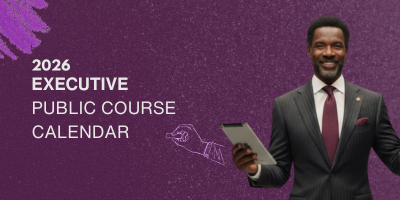How Africa’s Civil Service Can Close the Digital Skills Gap
October 2, 2025 Government
Across Africa, governments are racing to digitize services, modernize operations, and meet the expectations of a young, connected population. Yet a persistent skills gap in artificial intelligence (AI), cloud computing, data stewardship, and service design threatens to stall transformation.
Civil services—traditionally risk-averse and process-heavy—often struggle to recruit, retrain, and retain the talent required to lead in this new era. The result is a widening gap between shelves and delivery capacity.
Why the Skills Gap Matters
Digital transformation in the public sector is not simply about deploying new technology—it is about rethinking how governments serve citizens. Without the right skills, initiatives risk being underutilized, misaligned with user needs, or abandoned altogether.
For example, AI literacy is becoming essential for everything from regulatory decision-making to fraud detection. Cloud fluency is critical for scaling secure, cost-effective services. Service design ensures that digital platforms meet real citizen needs rather than replicating analog inefficiencies. Without these competencies, governments face slower adoption, lower trust, and missed opportunities.
Pathways to a Skilled Civil Service
1. Competency Frameworks and Academies
Governments need structured learning pathways—covering AI, data, cloud, and cybersecurity—tailored to roles at every level. Prompt-engineering playbooks and role-based certifications can move digital knowledge from abstract to actionable.
2. Cross-Functional Delivery Teams
When policymakers, technologists, and operations leaders collaborate, innovation accelerates. Agile pilots, sandboxes, and “learn-by-doing” projects allow civil servants to test solutions in safe environments before scaling.
3. Industry and Academic Partnerships
Internships, secondments, and joint research programs can inject cutting-edge expertise into public institutions while offering civil servants practical exposure to industry best practices.
The Upside of Investing in Skills
A digitally capable civil service does more than keep pace with technology—it drives outcomes that matter to citizens:
- Faster and safer tech adoption through informed decisions.
- But that reduce friction for citizens and businesses.
- Higher retention and morale as public servants see their roles evolve and impact grow.
Risks to Anticipate
Even the best-designed programs face challenges. Training without deployment risks skills decay. Budget pressures may limit scale, while talent competition with the private sector could drain skilled officers. Governments must therefore pair learning initiatives with real projects and create incentives that encourage career growth within the public sector.
The Way Forward
For Africa, the question is not whether civil services will adapt—it is how fast and how effectively. Building AI-ready, cloud-fluent, citizen-centered workforces requires deliberate investment, institutional partnerships, and a shift in culture from risk aversion to innovation.
If governments can close the digital skills gap, they will not only modernize service delivery but also strengthen public trust and competitiveness across the continent.



